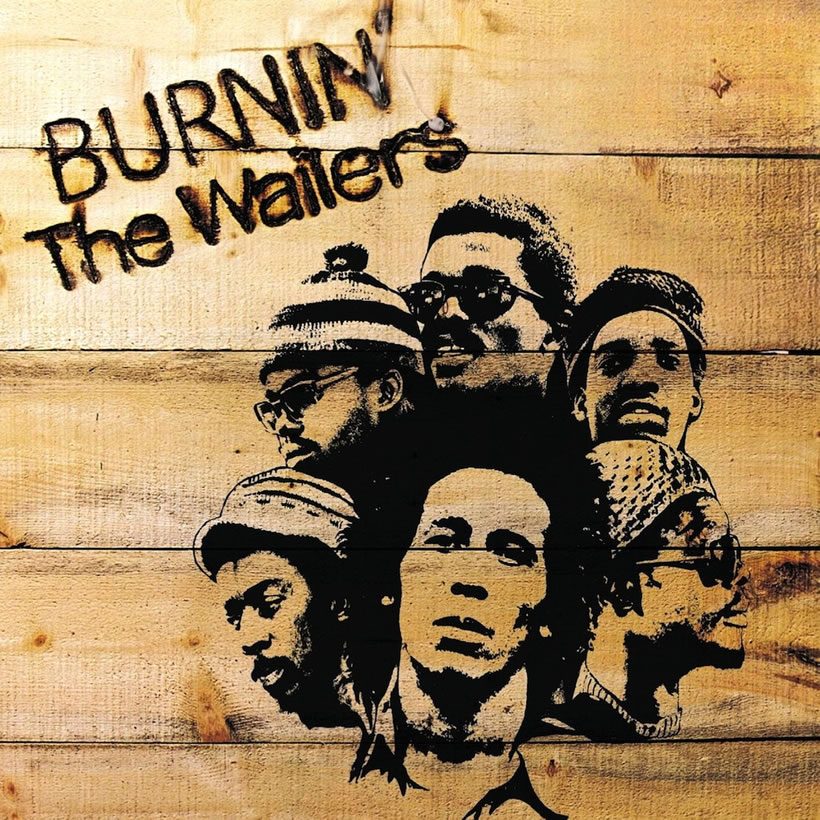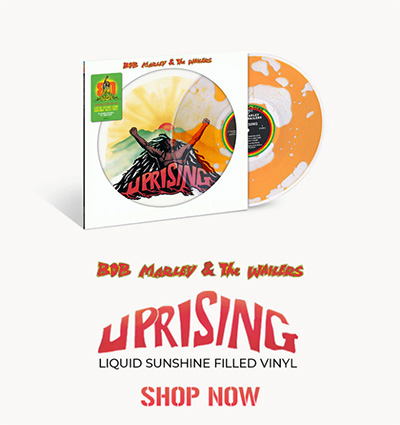Bob Marley & The Wailers – Burnin’
Less than six months after the Wailers released their first international album, the conflagration continued with the release of ‘Burnin’.’

Things moved fast in the music business of 1973. Less than six months after the Wailers released their first international album, Catch A Fire on May 4, the conflagration continued with the release of Burnin’ on October 19. Still billed only as The Wailers, and still led by the three-man vocal front line of Bob Marley, Peter Tosh, and Bunny Wailer, the band was now moving through the gears with an increasing sense of mission.
Although Catch A Fire had not been a hit, the response to it among tastemakers and early adopters had been overwhelming. Island Records supremo Chris Blackwell, who had begun his career selling records by Jamaican acts from the boot of his car to the expatriate community in Britain, knew a thing or two about this particular market and now scented something spectacular in the air.
Catch A Fire had not only introduced the sinuous rhythmic charms of reggae music, but it had also alerted the world to the cry for justice of a poor and historically dispossessed people. Burnin’ upped the ante in all departments. The album’s almost-title track “Burnin’ And Lootin’” promised a full-scale riot. Powered by Aston “Family Man” Barrett’s supremely melodic bassline and brother Carlton Barrett’s one-drop drum beat, the song had a groove that hovered somewhere between a funeral march and an all-night shebeen. The melody was mournful, the tone full of anger and regret as Marley pondered his people’s predicament: “All that we got, it seems we have lost.”
Meanwhile, the album’s most celebrated song, “I Shot The Sheriff” was a precursor of the murderous street stories that would later come to define American gangsta rap. “If I am guilty I will pay,” Marley sang, but the story left little room for doubt that this was a righteous killing provoked by a history of grievous mistreatment by the lawman in question. It would be another year before Eric Clapton took his version of the song to No.1 in the US (No.9 in the UK), a game-changing hit that would transform the worldwide perception and fortunes of reggae music at a stroke.
These two songs alone marked out Burnin’ as an album that gave serious voice to some heavy social and cultural concerns. For most of its history, Jamaica had been a rural economy. The rapid post-war influx of people from the land into Kingston had triggered an era of haphazard growth and wildly uneven wealth distribution in and around the capital. Large swathes of the city had become urban ghettoes where the key players in a rudely vibrant music scene rubbed shoulders both with the victims of abject poverty and the trigger-happy “posses” (gangs) of loosely organised criminals. This harsh, edgy yet spiritually rich environment provided an immensely powerful backdrop to the songwriting of Marley, Tosh and, Wailer, and never more so than on Burnin’.
The album’s opening track “Get Up, Stand Up” became an enduring anthem of people power, adopted by civil rights activists the world over. Marley and Tosh are said to have co-written the song while touring Haiti, where they encountered extremes of poverty that were the equal of anything in Jamaica. Interestingly, the lyric specifically criticized religious teachers for creating a smokescreen with promises of a paradise to come, thereby distracting people from claiming their rights as human beings here on this world. “Preacherman don’t tell me heaven is under earth,” Marley sang with evident disdain. The song would be re-recorded on subsequent solo albums by both Tosh and Wailer and would remain a key number in Marley’s repertoire to the end of his career; indeed it would be the last song he ever performed on stage (in Pittsburgh in September 1980).
With the encouragement of Blackwell, Marley emerged once again as the primary singing and songwriting voice of the Wailers on Burnin’. As with Catch A Fire, his songs accounted for the great majority of tracks, which may have been why Burnin’ was the last album before both Tosh and Wailer left the group. Dissatisfactions among the founders built up during a schedule that took them to America for the first time. Wailer found the touring onerous and once the band had returned to Jamaica, he was reluctant to leave again.
Although a “new” act in Britain and America, the Wailers had been singing and recording together since 1963, and could boast a plentiful catalogue of songs which were largely unknown outside Jamaica. Several of the tracks on Burnin’ were re-recordings of songs that had been released before. “Put It On,” a gentle, spiritual groove with the more emollient chant of “Lord I Thank You,” had been released as a single on the Studio One label in Jamaica in 1965, when it was one of the first songs to coin the word “toasting” to refer to the lyrical style of chanting by the dancehall DJs. Likewise “Duppy Conqueror” and “Small Axe” were both new recordings of songs that were old favorites in the Wailers’ story. (Songs which did not make it on to the final album included “Reincarnated Souls,” “No Sympathy,” and “The Oppressed Song”; these would eventually surface as bonus tracks on the “Definitive Remastered” edition released in 2001).
In this sense, Burnin’ was, to some degree, a summary of the Wailers’ progress to this point. An album full of revolutionary fire and fervor, it was also the last, heroic distillation of a line-up that had taken the teenaged Wailer, Tosh, and Marley on a journey from the streets of Trenchtown to the brink of global stardom. Henceforth it would be Marley who was very much the man in charge.














